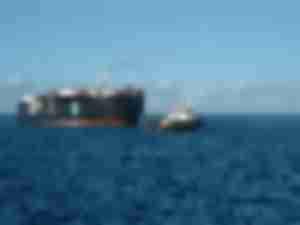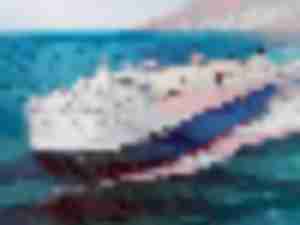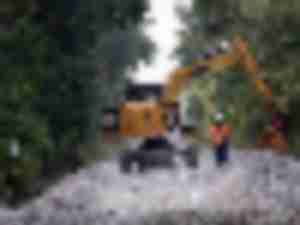The Jones Act: a New Face or New Fate
On September 20th Hurricane Maria slammed into Puerto Rico with Category 5 winds, knocking out power and devastating much of the island’s roads and infrastructure. Two weeks earlier, Hurricane Irma passing just north of the island also created significant damage. These storms dealt Puerto Rico a devastating blow. Fuel Oil and Natural Gas reserves were hardest hit, making it extremely difficult to restore power and electricity. As food, water and medical supplies become depleted, Puerto Rico faces a resupply problem. How to get the ports and infrastructure up and running so that relief can reach the people?
Canadian Naval Chief Underlines Challenges of “New Oceanic Age”
A high-ranking commander of the Canadian Navy has proclaimed the advent of “a new oceanic age” characterized by surging maritime commerce, global power politics, the impact of climate change in the Arctic region, and the challenges for the United States especially of China’s expanding involvement.
PMSA Criticizes LA/LB Clean Air Action Plan
The Pacific Merchant Shipping Association (PMSA) criticized a new proposed “Clean Air Action Plan (CAAP)” by the Ports of Los Angeles and Long Beach stating it proposes costly initiatives that will further erode the competitiveness of the two ports.
How technology is impacting construction logistics plans
Despite the construction industry being one of the slowest to adopt new technologies unlike other industries, in the past few years the construction industry has begun to embrace new technologies and use them to their advantage and keep up with other trades. One of the most vital elements in all aspects in construction is productivity. The adoption of new technologies such as using a mobile based application helps improve construction project productivity in areas including materials management and tool use time, including time spent using drill rigs.
Don Krusel retires from helm of Port of Prince Rupert
Widely praised as a visionary leader, Prince Rupert Port Authority president and CEO Don Krusel has announced his retirement after guiding the remote port in Northern British Columbia for 25 years. He has notably transformed it into arguably the fastest-growing container port in North America, fostering both Canadian and U.S. trade with Asia.
Reflagging America
In 1960 America held 16.9 percent of the world’s tonnage with 2,926 cargo vessels and tankers, against a total capacity of 17,317 vessels worldwide. At the turn of the century that number had dropped to 282 vessels registered under the U.S. Flag.
How to get your parcel through UK customs
The moment your parcel is collected from you, whether it be at home or from your local post office, its journey begins.
Harvey can’t keep Texas ports down
While estimates of total economic losses related to Hurricane Harvey are climbing to nearly $200 billion, major Texas seaports have shown their resiliency, sustaining minimal damage to port infrastructure and with most operations having resumed by a week and a half after the storm’s initial landfall.
Railroads rebounding from Harvey impacts
Following a Labor Day weekend that had railroad crews continuing to be busy in recovery efforts from Harvey, rail operations have resumed in much of Texas, in some cases on a limited basis, with those in the far eastern part of the Lone Star State looking to be the last to get back online.
A Nightmare Named Harvey
Levies are overflowing and much of Houston’s Transportation infrastructure is at this point inoperative.
© Copyright 1999–2024 American Journal of Transportation. All Rights Reserved











